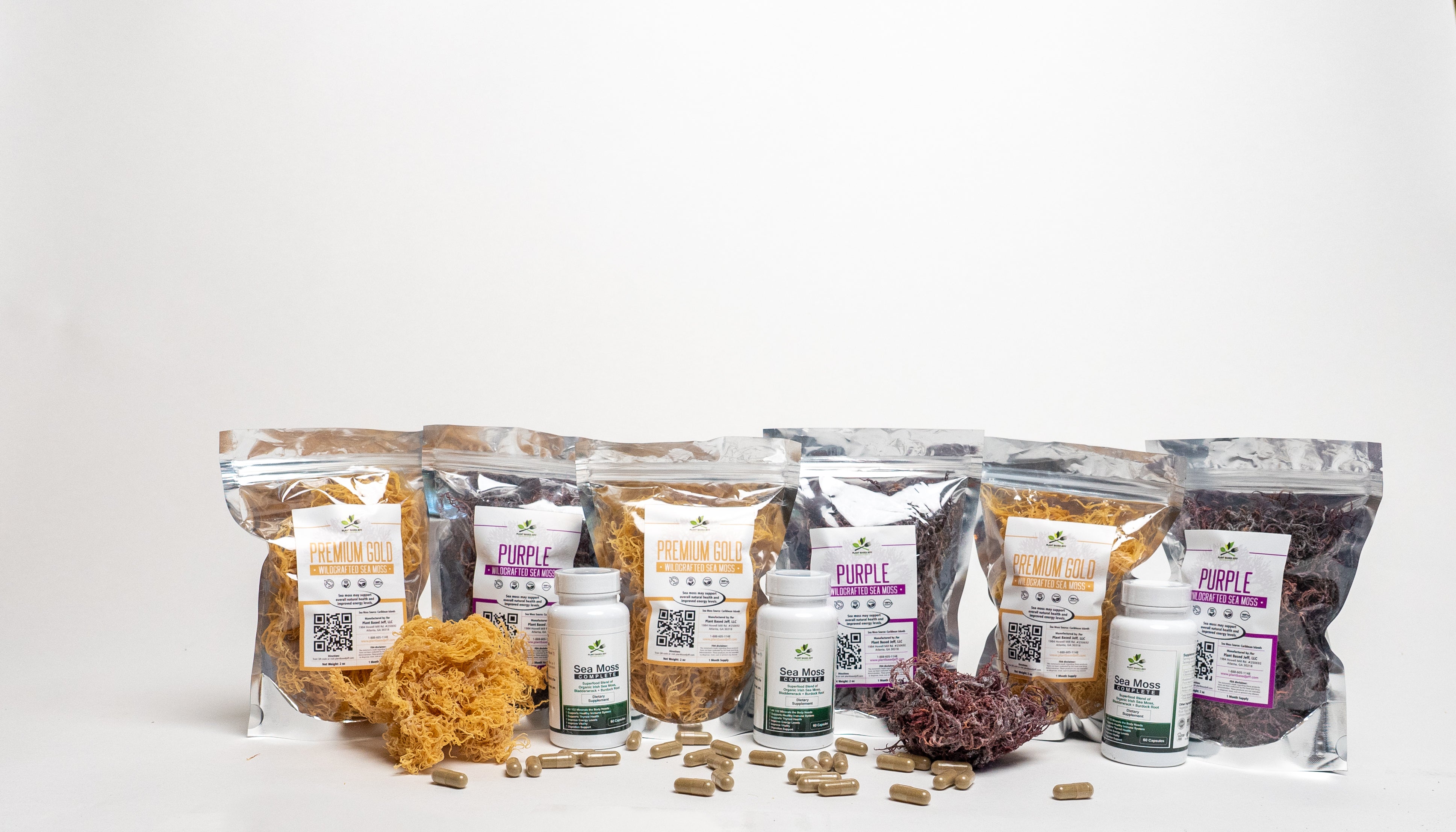
Everything You Need to Know About Plant-Based Sea Moss
Sea moss, or Irish moss, is a type of sea algae that people can add to food or take as a nutritional supplement. This plant is edible, as long as it's harvested in the right places.
Sea moss has been shown to have antibacterial properties, which can help prevent and treat urinary tract infections. It’s a source of carrageenan, a polysaccharide polysactose found in red seaweed that has been used to treat ulcers, irritable bowel syndrome and inflammatory bowel disease, and also as a food additive. It’s also rich in iodine and omega-3 fatty acids, which are important for brain health.
Here, we’ll look at the benefits and uses of sea moss, as well as its side effects, interactions, and safety information.
Sea Moss Definition
Sea moss, also known as Irish moss (Chondrus crispus) or carrageen, is a type of red algae that grows on the coasts of Europe, Africa and certain islands in the Pacific and Atlantic oceans. It lives in the shallow sublittoral zone of the ocean, where the nutrient level is high, temperature ranges from 32-34 degrees Fahrenheit, and the salinity ranges from 32-35 ppt.
Sea moss grows in a mat form and resembles a type of seaweed. It has a red-to-purple color, with a gel-like consistency when dried. It has a hearty flavor and is also known as carrageenan moss, carrageen moss, carrageen seaweed and Indian moss.
Uses of Sea Moss
People in Ireland and other countries have traditionally used it to make jellies, wines and puddings, but it's also used in food additives and skin products such as shampoos, creams, lotions and even soaps.
Sea moss has been part of folk medicine for years, and is believed to lower blood pressure, aid digestion and soothe intestinal inflammation, and treat skin disorders and ulcers. Proponents also say it helps with hypertension, heart disease, infection, hemorrhoids, as well as asthma, psoriasis and eczema.
Sea moss is also used as a natural remedy for gastroenteritis, herpes, and urinary tract infections, and to help prevent hair loss. People also use it in skin care products and as a thickener and emulsifier in food.
Benefits of Sea Moss
Sea moss may be effective for some health conditions, but there are a lot of risks to consider before using it. Sea moss may be effective for some health conditions, but there are a lot of risks to consider before using it.
Evidence suggests that sea moss may improve symptoms of skin conditions, such as eczema and psoriasis, but it is not recommended for this purpose.
Researchers have found that sea moss have the following benefits.
1) Helps in Treating Urinary Tract Infections
Seaweeds have been used in traditional medicine for centuries, especially in Ireland and other countries along the coasts of the Atlantic Ocean, to treat ulcers and infections. Sea moss is believed to have antibacterial properties, which may help treat urinary tract infections, but more research is needed before this can be confirmed.
2) Has Anti-Inflammatory Properties
The carrageenan found in sea moss has anti-inflammatory properties, according to a study that reviewed the properties of sea moss.
In the study, researchers found that carrageenan extracted from sea moss had a positive effect on human keratinocytes and chondrocytes, which are cells found in the skin and cartilage. The study also found that it may have a positive effect on inflammatory bowel disease and ulcerative colitis.
3) May Lower Blood Pressure
Increased carrageenan intake may help lower blood pressure in people who are at risk for hypertension, according to a study published in the British Journal of Nutrition.
Researchers in this study found that those who consumed carrageenan in their diets had lower blood pressure, compared to those who didn't consume sea moss and seaweeds.
4) Has Antioxidant Properties
Some research suggests that sea moss extracts had high antioxidant activity and that the carrageenan, which is found in sea moss, had the highest antioxidant activity.
5) May Be Beneficial for People with Eczema and Psoriasis
Sea moss may help treat eczema and psoriasis, although it is not recommended as a treatment for these conditions. Some research supports the use of sea moss for these conditions, but there is not enough evidence to recommend this treatment.
Conclusion
Sea moss has a lot of history in traditional medicine, but more studies are needed to confirm that it is safe and effective for treating eczema and psoriasis. There is not yet enough evidence to support using it to treat these conditions.
Plant Based Jeff offers sea moss capsules that are of the best and highest quality. Check out our list of sea moss supplements today!


Leave a comment
This site is protected by hCaptcha and the hCaptcha Privacy Policy and Terms of Service apply.